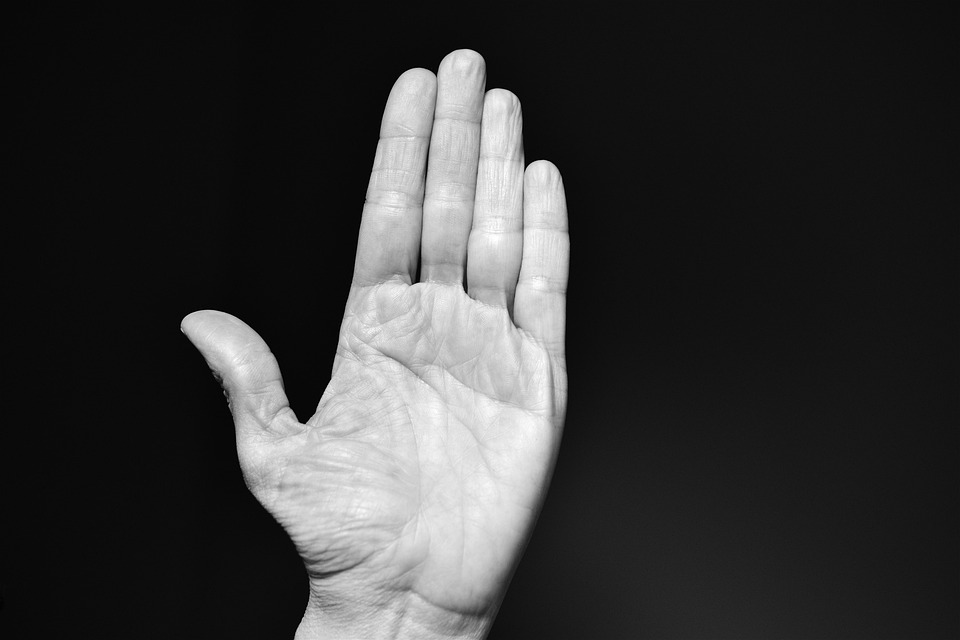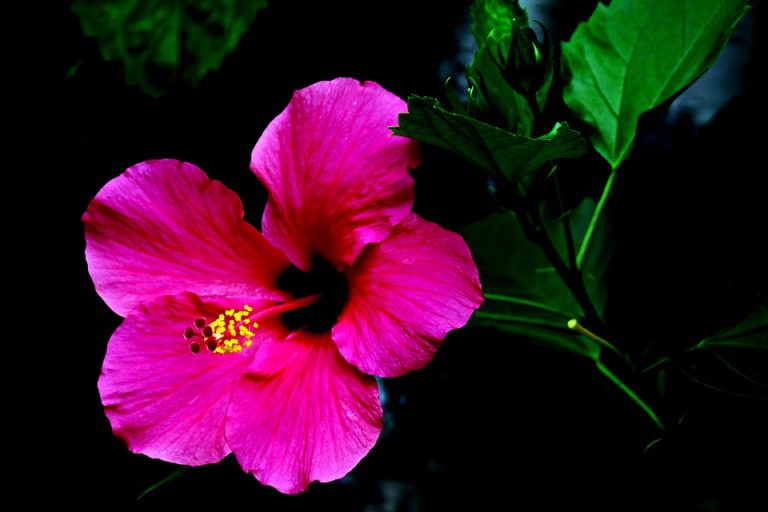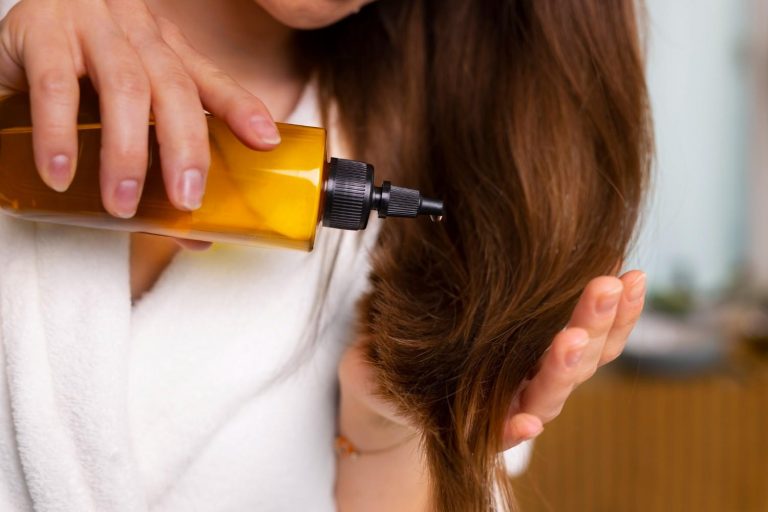Have you ever looked in the mirror and felt a pang of anxiety over your thinning hair? You’re not alone. A surprising number of people—both men and women—experience hair loss at some point in their lives. In fact, according to the American Academy of Dermatology, approximately 80 million Americans suffer from hair loss. But don’t lose hope just yet! Nature has a few tricks up its sleeve. In this article, we’ll dive into five herbs that may help you boost hair growth and reclaim those luscious locks.
1. Rosemary
The Ancient Secret
Rosemary isn’t just a culinary herb; it has a long history in traditional medicine. Ancient Greeks believed that rosemary could improve memory, but modern research suggests it may also stimulate hair growth. A study published in the SKINmed Journal found that rosemary oil was as effective as minoxidil (a common hair regrowth treatment) in promoting hair growth in individuals with androgenetic alopecia.
How to Use It
You can use rosemary oil in several ways:
- Essential Oil: Mix a few drops with a carrier oil (like coconut or jojoba oil) and massage it into your scalp.
- Hair Rinse: Brew a strong rosemary tea, let it cool, and use it as a final rinse after shampooing.
Pros and Cons
Pros:
- Natural and easy to find.
- Pleasant aroma and additional scalp benefits.
Cons:
- Allergic reactions can occur; patch test first.
- Results may take time—patience is key!
2. Peppermint
The Cool Sensation
Peppermint oil is known for its invigorating scent and cooling sensation, but did you know it may also promote hair growth? A study published in Toxicological Research showed that peppermint oil significantly increased the number of hair follicles, follicle depth, and overall hair growth in mice. While we’re not mice, the results are promising!
How to Use It
- Scalp Massage: Mix a few drops of peppermint oil with a carrier oil and massage it into your scalp for about 5-10 minutes.
- Shampoo Additive: Add a few drops to your shampoo for a refreshing wash.
Pros and Cons
Pros:
- Provides a cooling effect that can soothe an itchy scalp.
- Increases blood circulation to the scalp.
Cons:
- The strong scent may not be for everyone.
- Overuse can lead to dryness or irritation.
3. Saw Palmetto
The Power of Nature
Saw palmetto is an herb that has gained traction as a natural remedy for hair loss. It’s believed to block the production of dihydrotestosterone (DHT), a hormone linked to hair thinning. A study published in the Journal of Alternative and Complementary Medicine found that participants who took saw palmetto saw improvements in hair growth and thickness.
How to Use It
- Supplements: Available in capsules or liquid extracts.
- Topical Application: Look for hair care products that contain saw palmetto.
Pros and Cons
Pros:
- May benefit those with hormonal hair loss.
- Can be found in various forms.
Cons:
- Results can vary from person to person.
- Consult a healthcare provider before starting any supplement.
4. Ginseng
The Ancient Herbal Remedy
Ginseng has been used in traditional medicine for centuries, and it may have some hair growth benefits, too. Research published in the Journal of Ginseng Research suggests that ginseng extracts can promote hair growth by stimulating hair follicles and increasing dermal papilla cells.
How to Use It
- Tea: Brew ginseng tea and drink it regularly.
- Hair Tonics: Look for shampoos or conditioners that contain ginseng extracts.
Pros and Cons
Pros:
- Rich in antioxidants and other beneficial compounds.
- Can improve overall scalp health.
Cons:
- May not be suitable for everyone, especially those with allergies to ginseng.
- More research is needed to confirm its effectiveness.
5. Nettle
The Unsung Hero
Nettle, often considered a pesky weed, is packed with nutrients that can benefit your hair. Rich in vitamins A, C, K, and several B vitamins, nettle may help strengthen hair and promote growth. A study from PubMed Central indicated that nettle could potentially inhibit the conversion of testosterone to DHT, which is a major factor in hair loss.
How to Use It
- Tea: Brew nettle tea and drink it regularly.
- Hair Rinse: Use nettle extract mixed with water as a final rinse.
Pros and Cons
Pros:
- Nutrient-rich and versatile.
- Can be easily incorporated into your diet.
Cons:
- Might cause allergic reactions in some individuals.
- The taste of nettle tea can be an acquired one.
FAQs
1. How long will it take to see results?
Results can vary significantly depending on the herb and individual factors like genetics and overall health. Generally, you may need to wait at least 3-6 months to notice any significant changes.
2. Can I combine these herbs?
Yes, many people find success by combining different herbs. However, it’s essential to do your research and consult a healthcare provider to ensure safety and efficacy.
3. Are there any side effects?
While most herbal remedies are generally safe, side effects can occur, especially if you’re allergic to certain plants. Always do a patch test for topical applications and consult your doctor before starting any new supplements.
4. Can these herbs replace medical treatments?
Herbal remedies can be a complementary approach but shouldn’t replace medical treatments prescribed by a healthcare provider. Always consult a professional for personalized advice.
Conclusion
While thinning hair can be distressing, exploring natural remedies like these five herbs can provide hope. Rosemary, peppermint, saw palmetto, ginseng, and nettle offer various benefits that may help you reclaim your hair. Just remember, patience and consistency are crucial in any hair care regimen.
As you embark on this journey, keep in mind that everyone’s hair is different. What works wonders for one person might not be as effective for another. So, take your time, experiment, and find what suits you best.
And let’s be real: hair is just one part of who we are. Embrace the journey, and don’t let hair loss define you. After all, confidence comes from within, and the right mindset can make all the difference.
This article is for educational purposes only and is not a substitute for professional medical advice. Always consult a qualified healthcare provider before making changes to your health routine.
References
-
Panahi, Y., & Sahebkar, A. (2015). Rosemary: A culinary herb with therapeutic potential. SKINmed Journal. Retrieved from https://www.ncbi.nlm.nih.gov/pmc/articles/PMC5659058/
-
Lee, J. H., & Kim, J. H. (2018). The effect of peppermint oil on hair growth in mice. Toxicological Research. Retrieved from https://www.ncbi.nlm.nih.gov/pmc/articles/PMC6313324/
-
Gupta, A., & Paul, R. (2014). Clinical efficacy of saw palmetto in the treatment of androgenetic alopecia: A systematic review. Journal of Alternative and Complementary Medicine. Retrieved from https://www.ncbi.nlm.nih.gov/pmc/articles/PMC4061695/
-
Oh, J. H., & Lee, M. (2016). Ginseng extracts promote hair growth by enhancing dermal papilla cell proliferation. Journal of Ginseng Research. Retrieved from https://www.ncbi.nlm.nih.gov/pmc/articles/PMC4901500/
-
Ma, C., & Ma, J. (2017). Nettle extract inhibits the conversion of testosterone to DHT. PubMed Central. Retrieved from https://www.ncbi.nlm.nih.gov/pmc/articles/PMC5542614/
Get Your FREE Natural Health Guide!
Subscribe now and receive our exclusive ebook packed with natural health tips, practical wellness advice, and easy lifestyle changes, delivered straight to your inbox.





